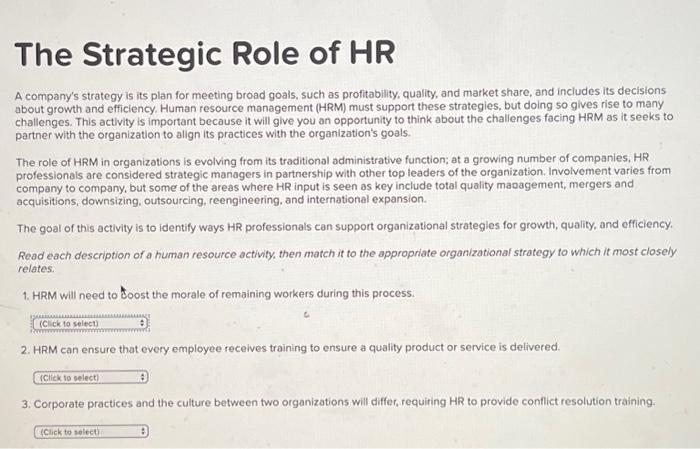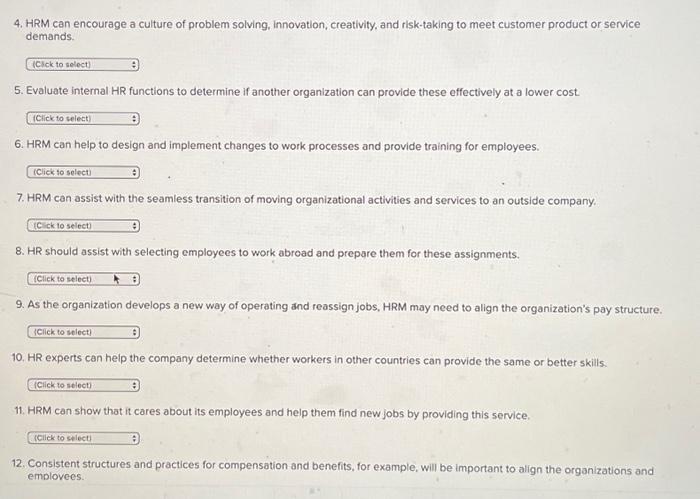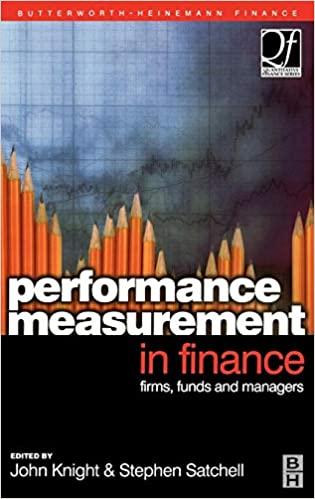A company's strategy is its plan for meeting broad goals, such as profitablity, quality, and market share, and includes its decisions about growth and efficiency. Human resource management (HRM) must support these strategies, but doing so gives rise to many challenges. This activity is important because it will give you an opportunity to think about the challenges facing HRM as it seeks to partner with the organization to align its practices with the organization's goals. The role of HRM in organizations is evolving from its traditional administrative function; at a growing number of companies, HR professionals are considered strategic managers in partnership with other top leaders of the organization. Involvement varies from company to company, but some of the areas where HR input is seen as key include total quality maoagement, mergers and acquisitions, downsizing, outsourcing, reengineering, and international expansion. The goal of this activity is to identify ways HR professionals can support organizational strategles for growth, quality, and efficiency. Read each description of a human resource activity, then match it to the appropriate organizational strategy to which it most closely relates. 1. HRM will need to toost the morale of remaining workers during this process. 2. HRM can ensure that every employee receives training to ensure a quality product or service is delivered. 3. Corporate practices and the culture between two organizations will differ, requiring HR to provide conflict resolution training. A company's strategy is its plan for meeting broad goals, such as profitablity, quality, and market share, and includes its decisions about growth and efficiency. Human resource management (HRM) must support these strategies, but doing so gives rise to many challenges. This activity is important because it will give you an opportunity to think about the challenges facing HRM as it seeks to partner with the organization to align its practices with the organization's goals. The role of HRM in organizations is evolving from its traditional administrative function; at a growing number of companies, HR professionals are considered strategic managers in partnership with other top leaders of the organization. Involvement varies from company to company, but some of the areas where HR input is seen as key include total quality maoagement, mergers and acquisitions, downsizing, outsourcing, reengineering, and international expansion. The goal of this activity is to identify ways HR professionals can support organizational strategles for growth, quality, and efficiency. Read each description of a human resource activity, then match it to the appropriate organizational strategy to which it most closely relates. 1. HRM will need to toost the morale of remaining workers during this process. 2. HRM can ensure that every employee receives training to ensure a quality product or service is delivered. 3. Corporate practices and the culture between two organizations will differ, requiring HR to provide conflict resolution training








